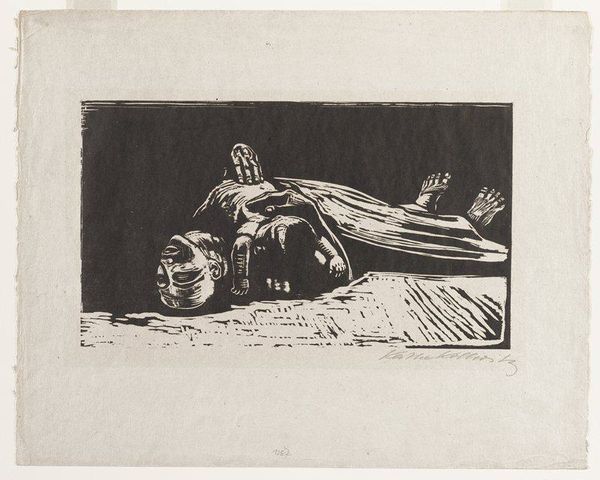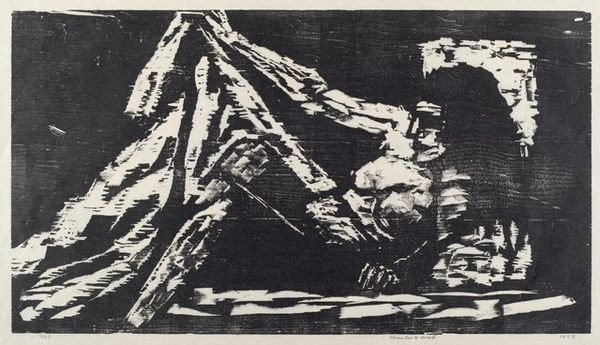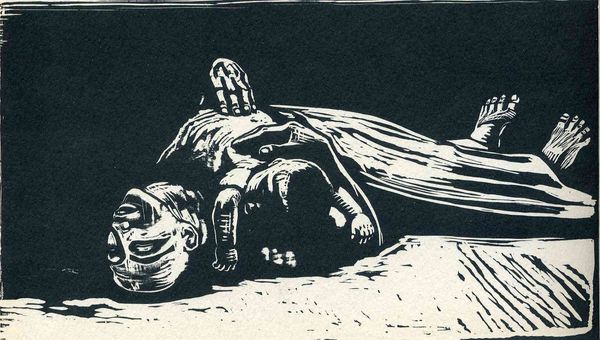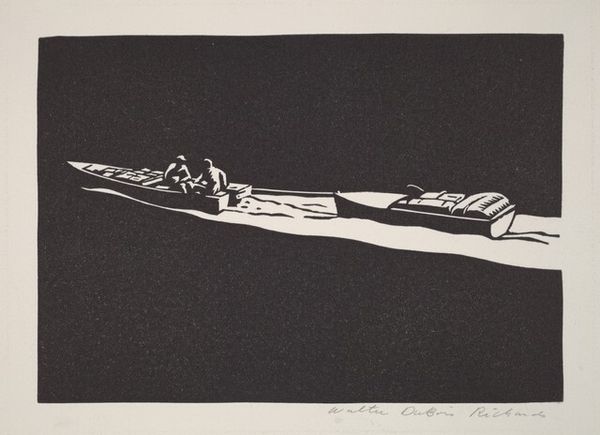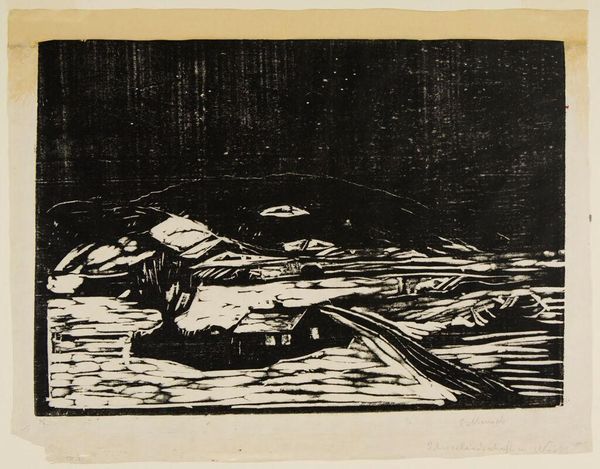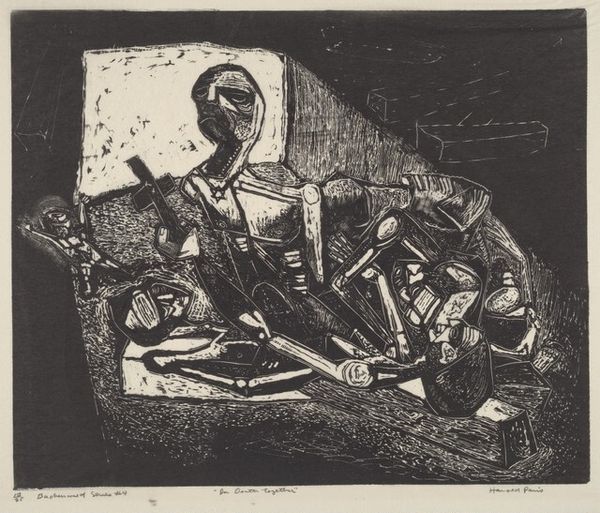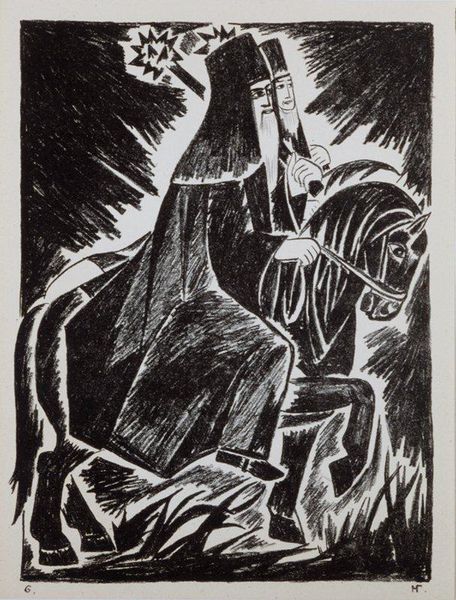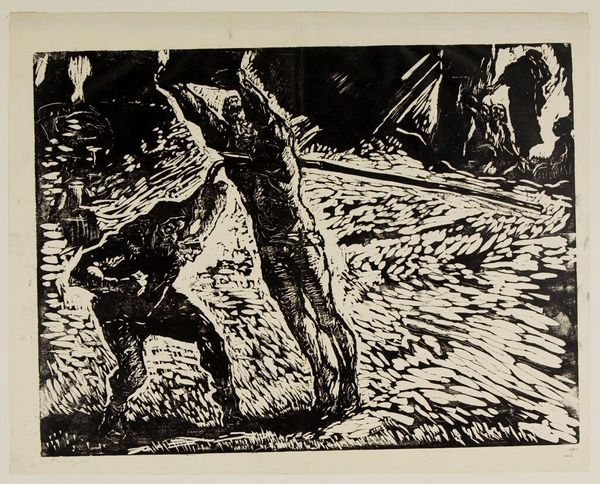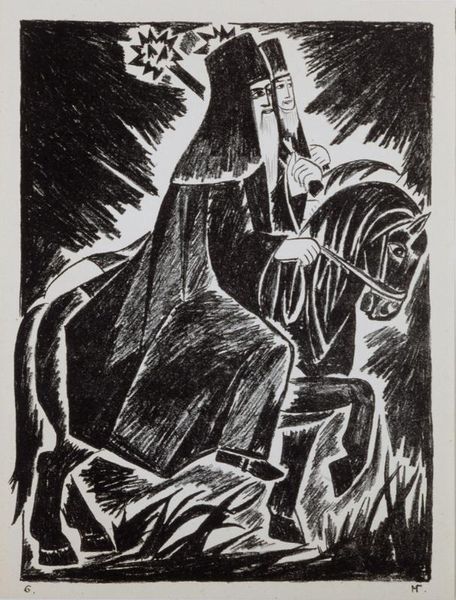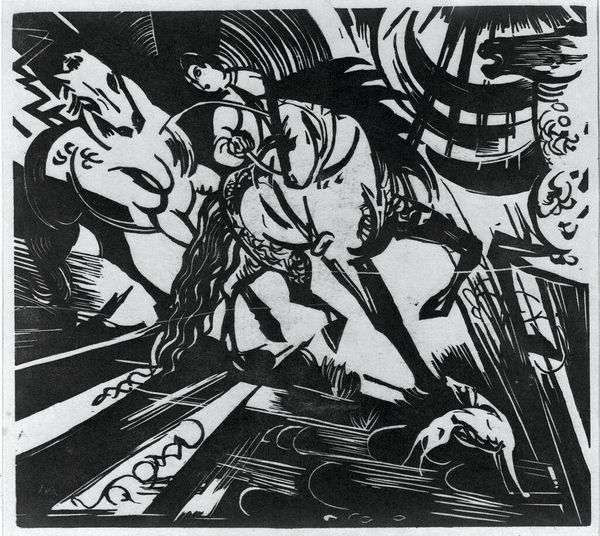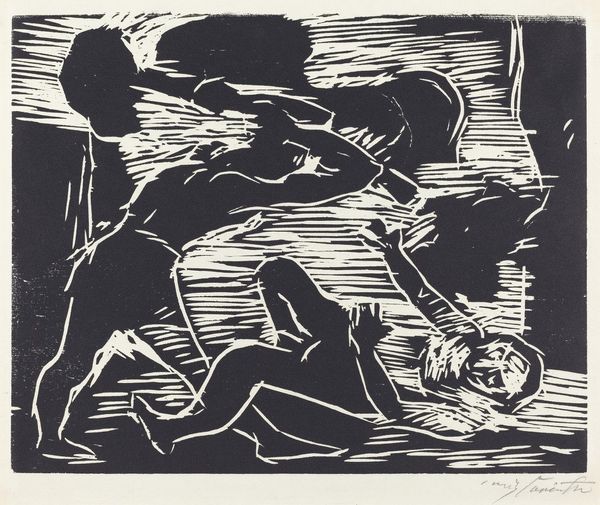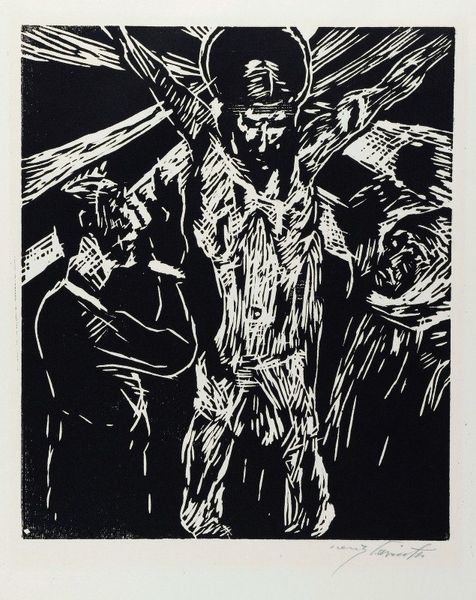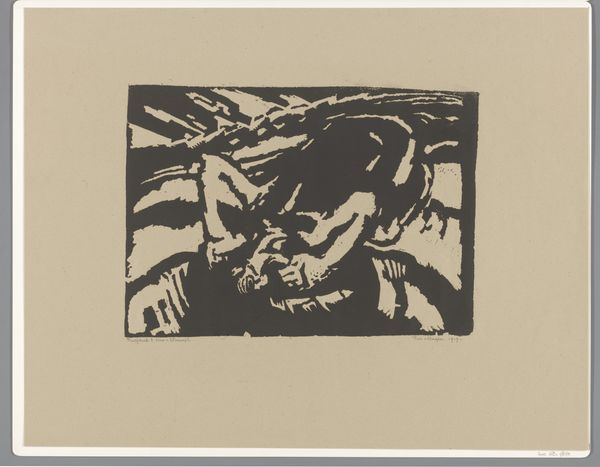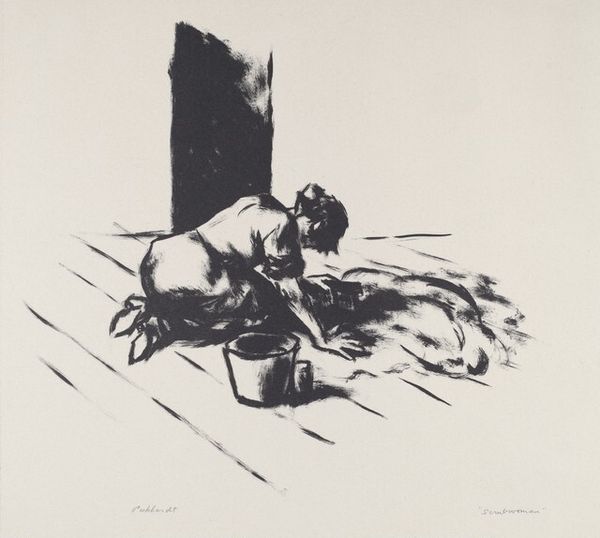
print, linocut, woodcut
#
ink drawing
# print
#
linocut
#
figuration
#
linocut print
#
expressionism
#
woodcut
#
history-painting
Dimensions: 11 7/8 x 20 7/8 in. (30.16 x 53.02 cm) (image)18 7/8 x 25 7/8 in. (47.94 x 65.72 cm) (sheet)
Copyright: No Copyright - United States
This is Kathe Kollwitz's "The Widow II," a woodcut print, made sometime in the first half of the 20th century. It's a stark image, all black and white, that hits you right in the gut. The thing about woodcut is that it's so direct, so un-fussy. You see the marks of the tool, the artist's hand. It’s a process of carving away, of reduction, which feels appropriate here. Look at the white lines that define the figures, they're raw, almost brutal. The texture in the lower portion of the print is like a bed of nails. And that darkness, that solid block of black looming over the figures, it's not just a background. It's a weight, a presence. You can feel the grief, the despair, pressing down. Kollwitz made a lot of prints about war and loss. She understood that art wasn't just about beauty, but about bearing witness, about feeling. Goya comes to mind. Artists willing to look into the abyss. It’s powerful stuff.
Comments
minneapolisinstituteofart about 2 years ago
⋮
Käthe Kollwitz is remembered for her haunting scenes of suffering, especially the tragic consequences of poverty and disease among women and children. She was anti-war, anti-violence, and ultimately a believer in the triumph of the human spirit, and she skillfully used the graphic arts—prints, illustrations, posters—to promote her left-leaning social agenda. In her print cycle Krieg (War), Kollwitz exploited the woodcut’s stark graphic power to illustrate war’s tragic effect on wives, parents, and children left behind. Tied to no specific time or place, the heartrending images are both universal admonishments against war and personal memories of loss—her son Peter died in battle in 1914, two months after joining the German Army.
Join the conversation
Join millions of artists and users on Artera today and experience the ultimate creative platform.
